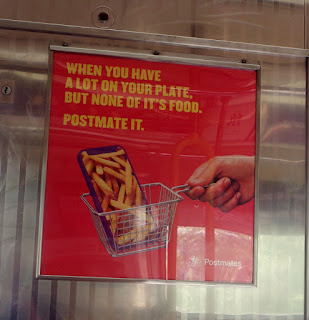One of my favorite series from the past is The Fugitive starring
David Janssen. Its premise: Dr. Richard Kimble, an innocent man, is
convicted—with persuasive circumstantial evidence pointing to his guilt—of
murdering his wife. His claim to having seen—on the night of the murder—a one-armed man leaving the scene of the crime could not be substantiated. Luckily for Kimble, “fate moved its huge hand,” derailing the train
escorting him to death row. This astonishing stroke of good fortune facilitated
his escape into the cold, cruel world. His abiding mission thereafter: Find the
mysterious one-armed man before Lt. Philip Gerard, Kimble's tenacious policeman
pursuer, found his fugitive from injustice.
And so it went—week after week after week for four
seasons—with the existential, low-key Kimble encountering the good, bad, and
ugly of humanity during his peripatetic and precarious life on the run. He toiled "at many jobs." The
Fugitive was certainly trailblazing for 1960s television fare. I was a
little too young to be a captive audience during its prime-time run—a toddler
when it debuted in 1963 and just five years old when its popular finale—with a then record-shattering viewership—aired. For whatever reason, The Fugitive never appeared in syndication—in my neck of the woods at least—during
the 1970s and 1980s, when we were inundated with reruns of everything from Bonanza
to Batman to Barnaby Jones. No cable TV—with hundreds
of channels to choose from—existed then. We selected our viewing
pleasure from a maximum of ten or twelve tops.
In fact, I didn’t become acquainted with The Fugitive until
it turned up on the A&E cable network in the 1990s. I subsequently
purchased part of the series as it was being released—rather haphazardly and
unreliably as things turned out—on VHS tapes. The saving grace of the tapes was
the informal, reading-off-the-box introductions by the erudite Barry Morse, who played
Lt. Gerard with—to use the actor’s own words—“hopefully a very convincing
American accent.” I don’t exactly know what an American accent is, but I’d say humble Barry masterfully pulled it off.
One of my favorite Barry Morse-intro sound bites involved
his take on actor Bill Raisch, who periodically played the one-armed man, Fred
Johnson, in the series. Morse said at one point in his delightful British intonation—not the manufactured American one—“He really was a one-armed man!”
Raisch had lost the genuine article during World War II and had fashioned a
career as a dancer and stuntman. Acting, though—with actual lines to memorize and recite—apparently made him a nervous wreck.
For some reason, I distinctly remember snippets of an episode that featured Raisch. He had
a lady friend in the story who somehow and somewhere—that I don’t
recall—encountered Kimble. Dr. Kimble, that is, who saved her life. A supreme coincidence, for sure, but the man, fugitive or free, was a doctor. Anyway,
when she mentioned this doctor to Fred Johnson, the one-armed man, he replied
in rapid-fire: “Doctor…what doctor…what did he look like?” The Bill
Raisch—one-armed man—life lesson is self-evident: It’s how we read its scripts that
count. The writers very likely wanted the dialogue read as: “Doctor? What
doctor? What did he look like?” Three sentences instead of one. Think about it...





























































